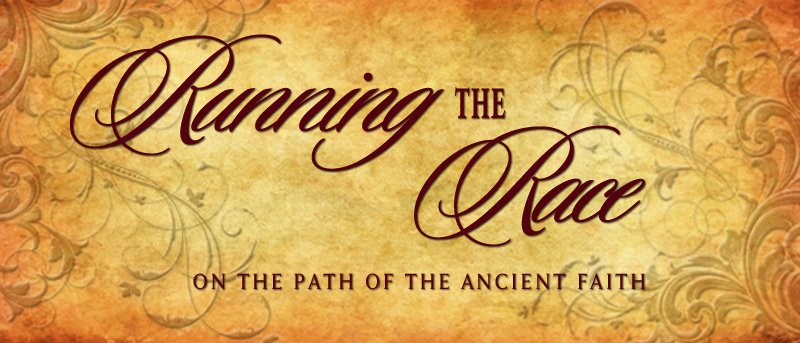The Tyranny of Positive Thinking
 Monday, October 25, 2010 at 8:00AM
Monday, October 25, 2010 at 8:00AM

"The extreme greatness of Christianity lies in the fact that it does not seek a supernatural remedy for suffering, but a supernatural use for it." -- Simone Weil
I'm probably going to step on someone’s toes with this blog entry, but I feel compelled to write it. I touched on this topic once before in my blog, but I feel very strongly that it bears repeating. It’s about the “tyranny of positive thinking.” Jimmie C. Holland, M.D., of Memorial Sloan-Kettering Cancer Center, coined the term, “the tyranny of positive thinking” in his book, The Human Side of Cancer.
Don’ t get me wrong—I believe that having a positive attitude most certainly beats having a bad attitude, especially during hard times.
However, there are many people today (including many Christians) , who adhere to “The Gospel According to Oprah.” Basically, it’s a New Age belief (ever read The Secret?) that used to be called “blab-it-and-grab-it” in Christian circles--the belief that you create any outcome you desire based on positive thinking and speaking.
Do I think that having a positive attitude will help make the experience of having a disease (or for another matter—getting through life), better? Yes! It might even get you to the doctor sooner because you take better care of yourself than a person with a negative attitude. But there’s a distinction that should be made between that and the Blab-It-And-Grab-It-Oprah’s-Gospel variety.
I will go so far as to say that—carried to an extreme—this belief in the “doctrine” of positive thinking is anti-Christian. Why? you may ask. Well, turn off the Joel Osteen program and I’ll tell you. I’m talking about a whole ‘nother level of positive thinking—the mindset that has infiltrated our culture with the belief that “what you say is what you get.”
This New Age thought is known in the Protestant Christian realm as "Positive Confession" or the "Word-Faith" movement. It teaches that faith is a matter of what we say more than whom we trust or what truths we embrace and affirm.
The term "positive confession" refers to the teaching that words have creative power. What you say, these people claim, determines everything that happens to you. Your "confessions," that is, the things you say -- especially the favors you demand of God (or the “universe”) -- must all be stated positively and without wavering.
Then God (or the universe) is required to answer. These adherents view their positive confessions as an incantation by which they can conjure up anything they desire: "Believe it in your heart; say it with your mouth. That is the principle of faith. You can have what you say."
The reality is that this belief system is a hybrid of mysticism, dualism, and gnosticism and borrows heavily from the teachings of the metaphysical cults.
Instead of trust in God as its object, it is a metaphysical force they trust. God is not sufficient in Himself, but can only do what He does by using this universal faith-force in obedience to certain cosmic laws. Man is a little god in God's class who has the same powers as God and can use the same force of faith by obedience to the same laws that God also must obey.
These people are missing it altogether. The truth is that when it comes to cancer or other life threatening diseases, studies show that, unfortunately, positive attitudes do not affect the outcome. If they did, a lot of very wonderful, positive thinking people would still be alive today. I understand that this flies in the face of what we have been led--and want--to believe.
Christianity is about redemption in the midst of suffering. Really, it is. But we American Christians wouldn’t know much about that. Unfortunately, contemporary Christianity doesn’t talk much about it. Our mega churches are too busy entertaining people and appealing to their felt needs. They revolve around the charisma of the guy in the pulpit and the quality of the band. If the pastor spent as much time talking about the suffering we may be handed in this life as he does about how God is going to bless us, congregants might be tempted to take their hot lattes elsewhere. Instead, we have people like Oprah and Joel Osteen preaching the gospel of “positive confession.”
I’m not discounting positive thinking per se. Besides, Christianity calls us to be the most positive thinkers on the planet. Even in the midst of suffering, we believe that our whole being, along with all of creation, will eventually be redeemed. No matter what tribulations or tragedies befall us, we believe that there is a purpose and a greater plan to our lives. This gives us hope and an inward sense of joy. But it doesn’t mean that we’re not human and that we won’t be discouraged at times along the way.
Someone asked me the other day, “Are you just putting on a happy face or are you really doing as well as you appear?” I responded, “You know, I am doing really well. None of this has been as bad as I had imagined it to be. I keep waiting for the other shoe to drop—like maybe it will all turn horrible when I least expect it.”
You might say that I should be more positive and less pessimistic. But my attitude is shaped by the fact that I hadn’t expected a cancer diagnosis in the FIRST place! I was just going along in life, thinking that I was taking good care of myself, when it hit. My treatment has not been as difficult as I anticipated and I do not believe I have had control over that, either. If anything, I thank God for His mercy on me. I did nothing to deserve a better time of it than my friend over there who’s having a harder time.
And I think my feelings are okay because they help me process the reality that my future--really, all of life--is something of a crapshoot. We don't have control--positive attitude or not--over many of the things that life may hand us. And the sooner we make that connection, perhaps the sooner we will turn to the One who does have control.
Positive thinking enthusiasts may actually be harming the people they intend to support. Think about it. If you believe that all you have to do is have a positive thought to make your illness better, what happens if it gets worse?
On top of all of the stress and trauma of actually going through the diagnosis and treatment, you now have the pressure of repressing your very human emotions of fear, sadness, anger, and depression, not to mention the added guilt for not being quite perky enough (especially when your life somehow depends on it)! How are you able to process these emotions if you’re busy shoving them down and not acknowledging them?
It makes sense to me that God created us as emotional beings and that all emotions are part of our humanity. When I read about Jesus’ life as the incarnate God, I read that at times He felt sad and wept. I read about His righteous indignation (anger) in the temple. I read about His love and longing, His grief for His friend, Lazarus, His anguish in the Garden of Gethsemane. Seems to me that God Himself experienced all the emotions of a human being. He wasn’t on a perpetual Pollyanna trip. And He certainly wasn’t what we would perceive as “positive” in every situation. Read the gospel of John and hear His words of admonition to the Pharisees and hypocrites (“You are of your father, the devil . . . “). Youch!
In the book, Dancing In Limbo, the way we deal with emotions is demonstrated in a story about a cancer survivor named Charlotte. While she was still in the hospital recovering from a double mastectomy with immediate reconstruction, many friends came by to offer reassurance and good cheer. They told her how strong she was, how surely she would beat the cancer. The author writes, “In effect, they discounted her physical and emotional agony, and minimized her risk.”
In contrast, another friend sat with Charlotte, massaging her shoulders and saying, “This is crap! Why does this happen?” Charlotte recognized that her friend was saying, “I feel sorry for you,” but she said it in her way. It was deeply affirming and a relief to have someone feel sorry for her when she was feeling sorry for herself. The author continues, “When self-pity becomes a habit, it becomes even less attractive, to be sure, and no longer stirs the compassion of others. But there are times when a deep sadness at the human condition and our part in it is right on the mark. Having cancer is one of those times.”
Witness the scene when Jesus prepared to visit the tomb of his friend, Lazarus, whom He loved. When He saw the sisters of Lazarus weeping over their dead brother, Scripture simply states, “Jesus wept.”
Of course, He could have said, “Ladies, ladies! Shape up those attitudes . . . the sun will come out tomorrow!” Rather, He shared our human nature and was subject to grief as any man would be. He gave us proof of His heartfelt love, a love on which I am banking my life (and death).




Reader Comments